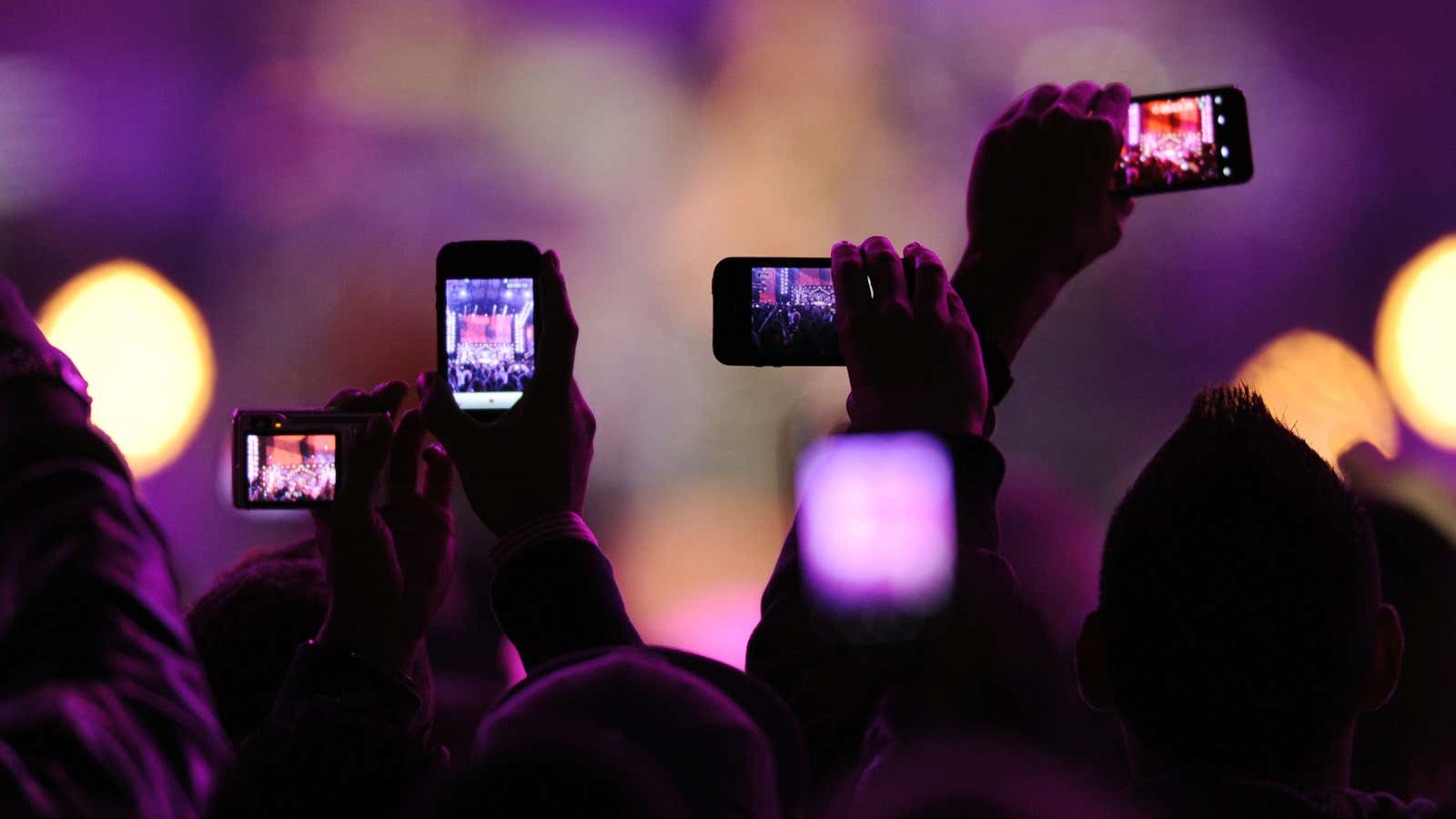Rumors of the web’s death are being greatly exaggerated, again.
Wired famously put an obituary on its cover more than four years ago, and recently, a pair of technology columnists have revived the idea. Farhad Manjoo wrote in the New York Times earlier this month that the web is “in decline” (paywall). Christopher Mims, in the Wall Street Journal, just wrote that the web “is dying” (paywall).
Both columnists rely on data that show usage of smartphones in the United States is surging and that, when Americans are on their phones, they spend much more time in apps than web browsers.
Their first error is to conflate percentages and raw numbers. Yes, mobile apps are claiming an increasing share of time spent online, but the overall pie is growing, too. Time spent with digital media nearly doubled in the past five years, to an average of 5 hours and 46 minutes a day. Mobile apps have largely been additive to the online experience.
Granted, if web usage were flat amid the rise of mobile, it might be cause for concern. But the data don’t support that. Flurry, the mobile analytics firm, reports that Americans are spending only 14% of their time on mobile devices in web browsers like Apple’s Safari and Google’s Chrome. Comscore puts the figure at 12% of time on smartphones in the US. The assumption is that the rest of the time, when people are inside native apps, doesn’t count as using the web.
To see the mistake here, just look at the most popular mobile app supposedly leading this turn away from the web: Facebook. A substantial portion of Facebook content offers links to other websites. Tapping them opens a browser within the app, and there you are, on the web. The latest version of Apple’s iOS mobile operating system, in fact, brings in-app browsers on par with the company’s own Safari browser in terms of capabilities and performance.
Quantcast estimates that a quarter of web browsing on iOS devices worldwide takes place inside in-app browsers. That’s part of the reason why many publishers that depend on the web for acquiring most of their audience (Quartz included) are enjoying rapid growth right now: Their content is spreading within Facebook’s mobile apps.
Moreover, a huge portion of phone usage defies the narrative of mobile replacing the web. One third of the time is spent with games; other large slices include messaging and utilities. These activities used to happen on other devices, like PCs and gaming consoles, that are indeed threatened by phones. But they were never really on the web.
And that raises the biggest issue here, which is what we mean when we say “the web.” Historically, it has referred to, as Mims puts it, “that thin veneer of human-readable design on top of the machine babble that constitutes the internet”—or that which can be rendered and viewed in a web browser. While the web appears healthy based on that definition, it’s an increasingly unhelpful concept. If you scroll through your timeline on twitter.com, that’s the web, but looking at the exact same content in Twitter’s mobile apps, as most people do now, is substantially different?
John Gruber earlier this year proposed a looser definition of the web that would include “anything transmitted using HTTP and HTTPS,” the standard protocol for websites. All of your tweets, no matter where you read them, are transmitted that way. Ditto for most of the content now increasingly consumed in mobile apps. Not everything is included under this definition: Email and SMS, for instance, rely on different protocols and shouldn’t be considered the web. New innovations like bitcoin and mesh networks, which also use different protocols, point to truly new forms of communication. But most of what’s happening on your phone, whatever it looks like, is still part of the web.
That’s not to say mobile apps aren’t fundamentally different from web browsers or don’t raise important questions about control, which Mims (who previously covered technology for Quartz) and Manjoo explore. But framing the question as the web vs. mobile is a fallacy that misses the more interesting changes that occur when more devices and more people get hooked up to the web.
